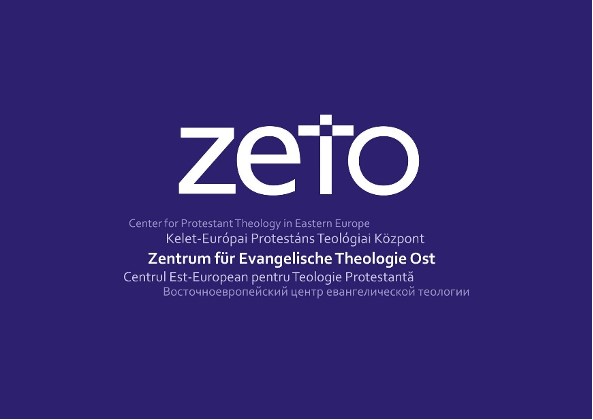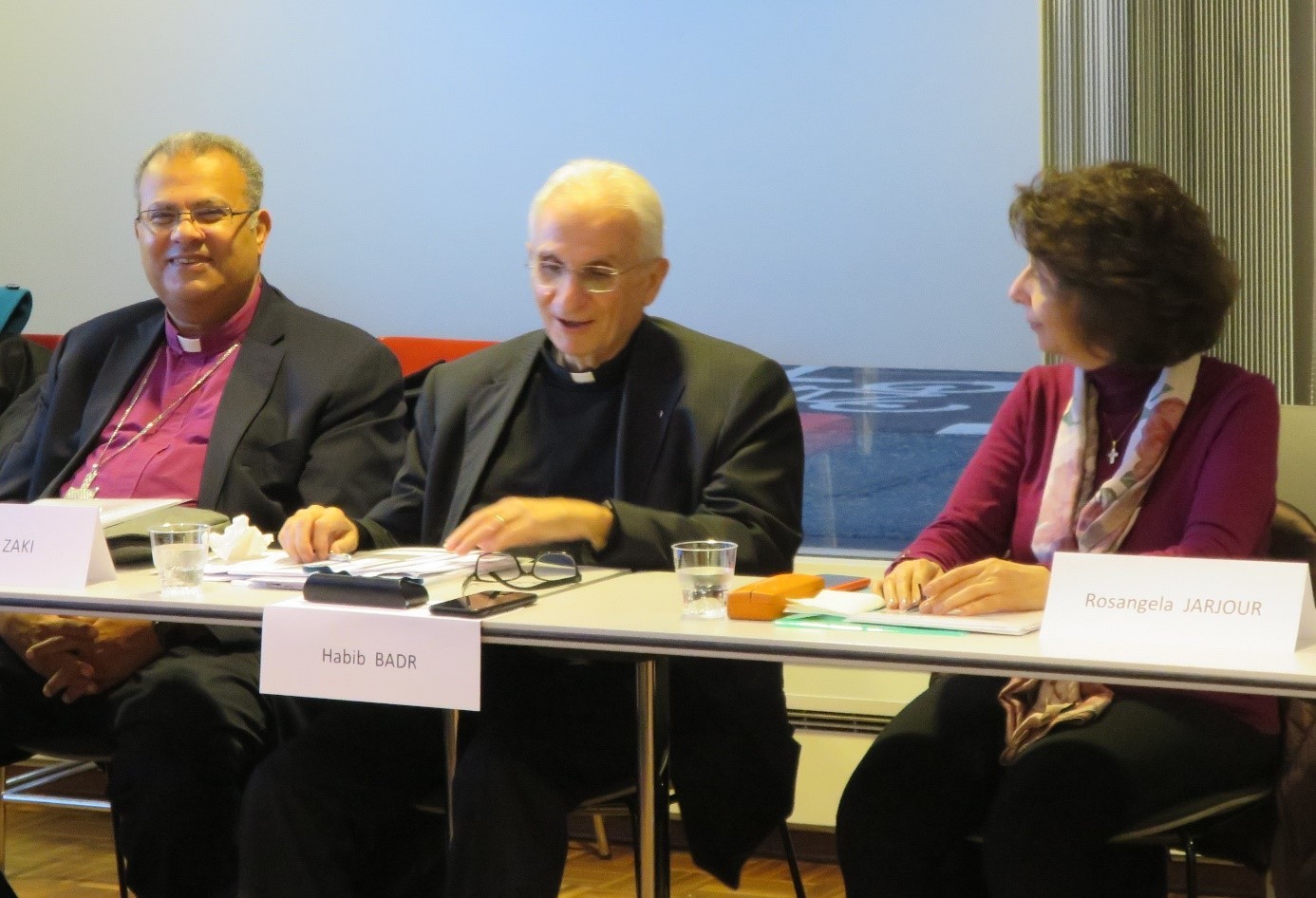Cooperations
Centro Melantone – Melanchthon Centre
The Centro Melantone runs a year-long study programme conducted in Italian each year and a summer course for theology students from other countries. The year-long theology programme in Rome offers a unique opportunity to study at Pontifical universities and the Protestant Valdese Faculty of Theology, gain ecumenical experience, and reflect within an international group of Protestant students. Students are tutored by the Director of Studies at the Centro Melantone. The Centro Melantone organises an Italian language course at the start of the year and assists with enrolment at the Roman universities. The centre can offer ten students accommodation at the ELCI’s church administration complex.
In addition, the Study Centre regularly runs international academic conferences, study and specialist courses based in Rome for theology students, ministers and German and English teachers of religion. These focus on topics relating to the history of the church and ecumenism with a direct link to the city of Rome and the Roman Catholic Church. The Centro Melantone generally co-organises events with other institutions.

Das Centro Melantone
Das Centro Melantone bietet jährlich in Rom und in italienischer Sprache ein Studienjahr und einen Sommerkurs für Studierende der Theologie aus anderen Ländern an. Das Theologische Studienjahr in Rom bietet die einzigartige Gelegenheit, an päpstlichen Hochschulen und an der evangelischen Waldenserfakultät für Theologie zu studieren, ökumenische Erfahrungen zu sammeln und in einer internationalen Gruppe evangelischer Studierender zu reflektieren. Dafür nehmen die Studierenden an einem Tutorenprogramm mit dem Studienleiter/der Studienleiterin des Centro Melantone teil. Das Centro Melantone organisiert einen italienischen Sprachkurs am Beginn des Studienjahres und ist bei der Einschreibung an den römischen Hochschulen behilflich. Für zehn Studierende bietet das Studienzentrum Unterkunftsmöglichkeiten in der Kirchenverwaltung der ELKI an.
Das Studienzentrum bietet darüber hinaus regelmäßig internationale wissenschaftliche Tagungen sowie Studien- und Fortbildungskurse in Rom für Theologiestudierende, Pfarrerinnen und Pfarrer und Religionslehrerinnen und -lehrer in deutscher und englischer Sprache an. Im Fokus der Tagungen und Kurse stehen kirchenhistorische und ökumenische Themen, die in direktem Bezug zur Stadt Rom und der römisch-katholischen Kirche stehen. Die Veranstaltungen des Centro Melantone finden in der Regel in Kooperation mit anderen Institutionen statt.

European Biblical Dialogues
The European Biblical Dialogues (formerly Berlin Bible Weeks) are a series of meetings for congregation members, run by the Union of Evangelical Churches since 1953. The CPCE linked up informally with this initiative in 1990 before formalising the relationship in 2017. One seminar each year is explicitly aimed at congregation members from the CPCE’s member churches, and several sessions are run in two languages (German and English). Participants from outside Germany are welcome to attend all events. The sessions involve both Bible contemplation and attention to a key issue in current affairs. They help participants to benefit from the experiences of other CPCE churches, thus deepening our church communion.
Information about the European Biblical Dialogues and the current programme can be found here.

Europäische Bibeldialoge
Im Rahmen der Europäischen Bibeldialoge (früher: Berliner Bibelwochen) der Union Evangelischer Kirchen finden seit 1953 Begegnungstagungen für Gemeindeglieder statt. Seit 1990 besteht eine informelle, seit 2017 eine formelle Kooperation mit der GEKE. Eine Tagung im Jahr ist ausdrücklich für Gemeindeglieder aus den Kirchen der GEKE vorgesehen; mehrere werden zweisprachig (deutsch-englisch) durchgeführt, bei allen sind auch nicht-deutsche Teilnehmende willkommen. Die Tagungen verbinden Besinnung auf die Bibel mit Arbeit an einem aktuellen Thema. Sie helfen den Teilnehmenden, von den Erfahrungen aus anderen GEKE-Kirchen zu profitieren, und dienen so der Vertiefung unserer Kirchengemeinschaft.
Hier findet man Informationen zu den Europäischen Bibeldialogen sowie das aktuelle Programm

Centre for Protestant Theology in Eastern Europe (ZETO)
The three pillars of ZETO are “Education” (Department for Protestant Theology at the Lucian Blaga University), “Orthodoxy and Ecumenism” (Institute for Ecumenical Research in Sibiu) and “Civil Society” (Meeting and Cultural Centre at the Friedrich Teutsch House in Sibiu) – these three separate institutions joining forces to found the Centre for Protestant Theology in Eastern Europe.
ZETO forms a competence centre for training ministers and teachers of religion in Protestant diaspora churches within an Orthodox environment. It also provides opportunities for these churches asserting their presence in the Orthodox world to convene regularly for consultations and networking meetings. In spring 2020, ZETO and the CPCE conducted an online consultation for the Protestant churches in south-eastern Europe on the digitalisation of spiritual services, with the proceedings published by the epd (34/2020).
Besides providing opportunities to study Protestant theology at the Lucian Blaga University, ZETO enables students and ministers undertaking contact studies or on sabbatical to complete an ecumenical semester at the Institute for Ecumenical Research, with the support of the Orthodox Faculty. Other options include language courses, research visits, guest vicariates, etc.

Zentrum für Evangelische Theologie Ost (ZETO)
Die drei Standbeine des ZETO sind „Ausbildung“ (Departement für evangelische Theologie der Lucian-Blaga-Universität), „Orthodoxie und Ökumene“ (am Institut für Ökumenische Forschung, Hermannstadt/Sibiu) und „Zivilgesellschaft“ (am Begegnungs- und Kulturzentrum Friedrich-Teutsch-Haus, Hermannstadt/Sibiu). Die drei Institutionen in unterschiedlicher Trägerschaft haben sich zum ZETO zusammengeschlossen.
Mit dem ZETO besteht ein Kompetenzzentrum im orthodoxen Umfeld, das einerseits der Ausbildung von Pfarrerinnen und Pfarrern sowie Religionslehrerinnen und Religionslehrern aus evangelischen Diasporakirchen in diesem Kontext dient und andererseits diese Kirchen, die sich in der orthodoxen Welt behaupten, zu regelmäßigen Konsultationen und Vernetzungstreffen zusammenbringt. Im Frühling 2020 haben ZETO und GEKE für die evangelischen Kirchen in Südosteuropa gemeinsam eine Online-Konsultation über die Digitalisierung geistlicher Angebote veranstaltet, die von epd dokumentiert wurde (34/2020).
Das ZETO bietet neben dem Studium der Evangelischen Theologie an der Lucian-Blaga-Universität auch ein Ökumenesemester am Institut für Ökumenische Forschung, das auch von der orthodoxen Fakultät mitgetragen wird, für Studierende und Pfarrerinnen und Pfarrer im Kontaktstudium, bzw. Sabbatical, sowie die Möglichkeit für Sprachkurse, Forschungsaufenthalte, Gastvikariate u.a.

Fellowship of the Middle East Evangelical Churches (FMEEC)
In 2006, the Protestant churches in the Middle East joined together in a church communion with the Amman Declaration. As in the Leuenberg Agreement of 1973, they recognise the sacraments, ministries and ordinations of the participating churches and commit themselves to pulpit and communion fellowship and to their common witness and service.
This makes the Fellowship of the Middle East Evangelical Churches (FMEEC) the sister church fellowship of the CPCE in the Middle East.
The CPCE General Assembly 2018 in Basel gave the mandate to intensify the relationship with the FMEEC.
This relationship consists on the one hand in including delegates of the FMEEC in certain CPCE work areas and consultations (often, however, hindered or prevented by denied visas), and on the other hand in supporting social projects in cooperation with the Gustav-Adolf-Werk Leipzig (see for example Church aid projects | Communion of Protestant Churches in Europe CPCE (leuenberg.eu)).
In July 2021, a social media action of the Protestant Church of Hanover took place. You can find the link to the joint online worship service from Hanover and Beirut “Hope for Lebanon” (with German and Arabic subtitles) here.
Hope for Lebanon – a worship service from Hanover and Beirut – YouTube
In 2006, the Protestant churches in the Middle East joined together in a church communion with the Amman Declaration. As in the Leuenberg Agreement of 1973, they recognise the sacraments, ministries and ordinations of the participating churches and commit themselves to pulpit and communion fellowship and to their common witness and service.
In September 2022 the President of the FMEEC Rev. Dr Andrea Zaki, the Vice-President Rev. Dr Habib Badr and the General Secretary Rosangela Jarjour took part in a CPCE Council meeting for the first time. Together they discussed current challenges of the churches. The CPCE Council and FMEEC agreed to intensify their cooperation and to record it in a written agreement. The CPCE Council committed itself to making the concerns of the Protestant churches in the Middle East better known in Europe.

Fellowship of the Middle East Evangelical Churches (FMEEC)
Die evangelischen Kirchen im Nahen Osten haben sich 2006 mit der Amman-Erklärung zu einer Kirchengemeinschaft zusammengeschlossen. Wie in der Leuenberger Konkordie von 1973 erkennen sie die Sakramente, Ämter und Ordinationen der beteiligten Kirchen an und verpflichten sich zur Kanzel- und Abendmahlsgemeinschaft und zu ihrem gemeinsamen Zeugnis und Dienst.
Damit ist die Fellowship of the Middle East Evangelical Churches (FMEEC) die Schwesterkirchengemeinschaft der GEKE im Nahen Osten.
Die GEKE-Vollversammlung 2018 in Basel hat den Auftrag gegeben, die Verbindung zur FMEEC zu intensivieren.
Diese Verbindung besteht einerseits in der Einbeziehung von Delegierten der FMEEC in bestimmte Arbeitsbereiche und Konsultationen der GEKE (häufig allerdings erschwert oder verhindert durch verweigerte Visa), andererseits in der Unterstützung von Sozialprojekten in Zusammenarbeit mit dem Gustav-Adolf-Werk Leipzig (siehe etwa Church aid projects | Communion of Protestant Churches in Europe CPCE (leuenberg.eu)).
Im Juli 2021 fand eine Social-Media-Aktion der Evangelischen Landeskirche Hannovers statt. Sie finden hier den Link zum gemeinsamen Online-Gottesdienst aus Hannover und Beirut „Hoffnung für den Libanon“ (mit deutschen und arabischen Untertiteln).
Hoffnung für den Libanon – ein Gottesdienst aus Hannover und Beirut – YouTube
Im September 2022 nahmen der Präsident der FMEEC Rev. Dr. Andrea Zaki, der Vizepräsident Rev. Dr. Habib Badr und die Generalsekretärin Rosangela Jarjour erstmals an einer Ratssitzung der GEKE teil. Sie berieten gegenwärtige Herausforderungen der Kirchen. GEKE-Rat und FMEEC vereinbarten, ihre Zusammenarbeit zu intensivieren und in einer schriftlichen Vereinbarung festzuhalten. Der Rat der GEKE verpflichtete sich, die Anliegen der evangelischen Kirchen im Nahen Osten in Europa bekannter zu machen.

